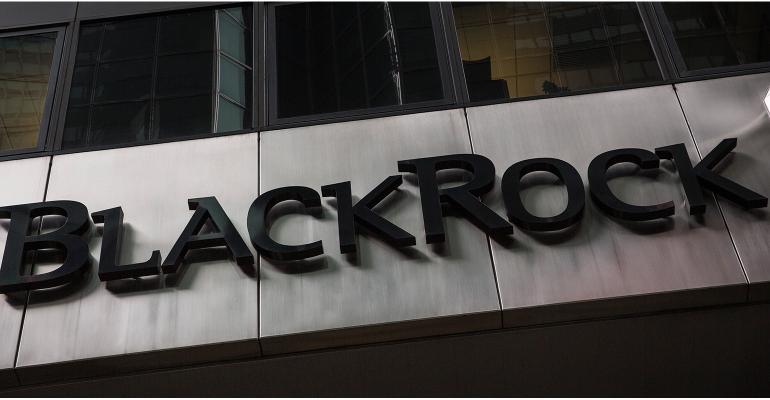(Bloomberg) -- As the biggest launch in the history of ETFs, it’s a ringing endorsement of all things ESG. But beyond its billion-dollar debut, BlackRock Inc.’s new fund might feel awfully familiar to most investors.
The top holdings in the U.S. Carbon Transition Readiness ETF (ticker LCTU) -- which lured about $1.25 billion in its first day on Thursday -- turn out to be Apple Inc., Microsoft Corp., Amazon.com Inc., Alphabet Inc. and Facebook Inc.
The same five companies, in the same order, are the top stakes in the largest environmental, social and governance ETF on the market, the $16.5 billion iShares ESG Aware MSCI USA ETF (ESGU). That’s also from BlackRock with a fee of 0.15%, half the price of LCTU.
In fact, those tech megacaps form the bedrock of many exchange-traded funds, both in the ESG space and beyond. For example, four of them also are among the five largest holdings of the $167 billion Invesco QQQ Trust Series 1 ETF (QQQ), which is simply tracking the Nasdaq 100.
“The new fund looks akin to any other U.S. tech fund,” said James Pillow, managing director at Moors & Cabot Inc. Its early success is all tied to the growing “drumbeat” to allocate to investments tied to responsible themes, he said.
For all their overlap in terms of holdings, there are key differences between funds like LCTU and ESGU.
The new arrival is actively managed, and aims to target Russell 1000 companies that are best positioned for a green energy transition, considering issues like clean technology and waste and water management.
Meanwhile, its more-established sister product passively tracks an index with a broader ESG remit.
The sheer size of some tech names naturally leads to heavy ownership, especially by cap-weighted ESGU. The common holdings also may say more about the tech giants and their commitment to ESG, including clean power, than they do about the funds’ strategies.
LCTU’s similarities to more mainstream indexes are intentional, according to Carolyn Weinberg, global head of product for iShares at BlackRock.
“It enables our clients to invest as a core part of their portfolio as opposed to a satellite aspect,” she said. “They can build portfolios the way that they traditionally build portfolios, but substitute out the benchmark and add the sustainable or climate version.”
The approach has certainly won some early fans. A consortium of large institutions was behind the stellar debut of LCTU and another fund, the BlackRock World ex U.S. Carbon Transition Readiness ETF (LCTD), the firm said in a statement. These included the California State Teachers’ Retirement System.
Read more: Record Number of ETFs Launch Into Industry Deluged With Cash
The record launch comes while many questions linger in the still-maturing ESG sector. A report released Friday by the U.S. Securities and Exchange Commission cautioned that some firms are mis-characterizing their products as ESG, possibly even violating securities laws in the process. The agency didn’t name any companies.
“The definition of ESG is wide enough to drive a fleet of semi trucks through,” said Ben Johnson, Morningstar Inc.’s global director of ETF research.
Even so, ESG ETFs are in demand. They attracted a record $31 billion in 2020, almost four times the prior year. In January alone, investors added $6.3 billion for a best-ever month. That’s pushed assets to an all-time high of $75 billion, up from less than $10 billion two years ago.
“It’s one of the areas where I think you will see growth, but there’s very little consensus as far as how you measure these things,” said Marc Odo, client portfolio manager at Swan Global Investments. “We need to be little bit more diligent about how we use that label.”
--With assistance from Sophie Caronello.
To contact the author of this story:
Claire Ballentine in New York at [email protected]





